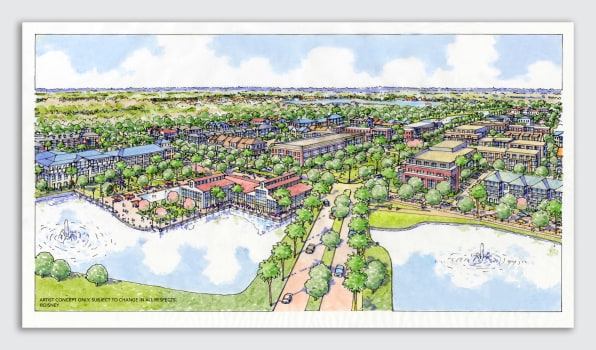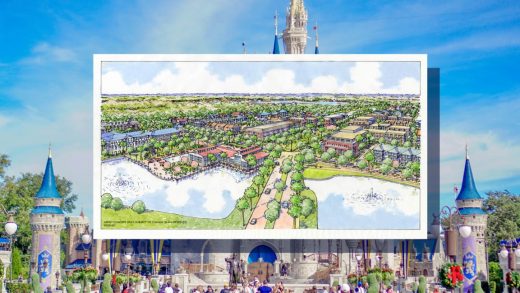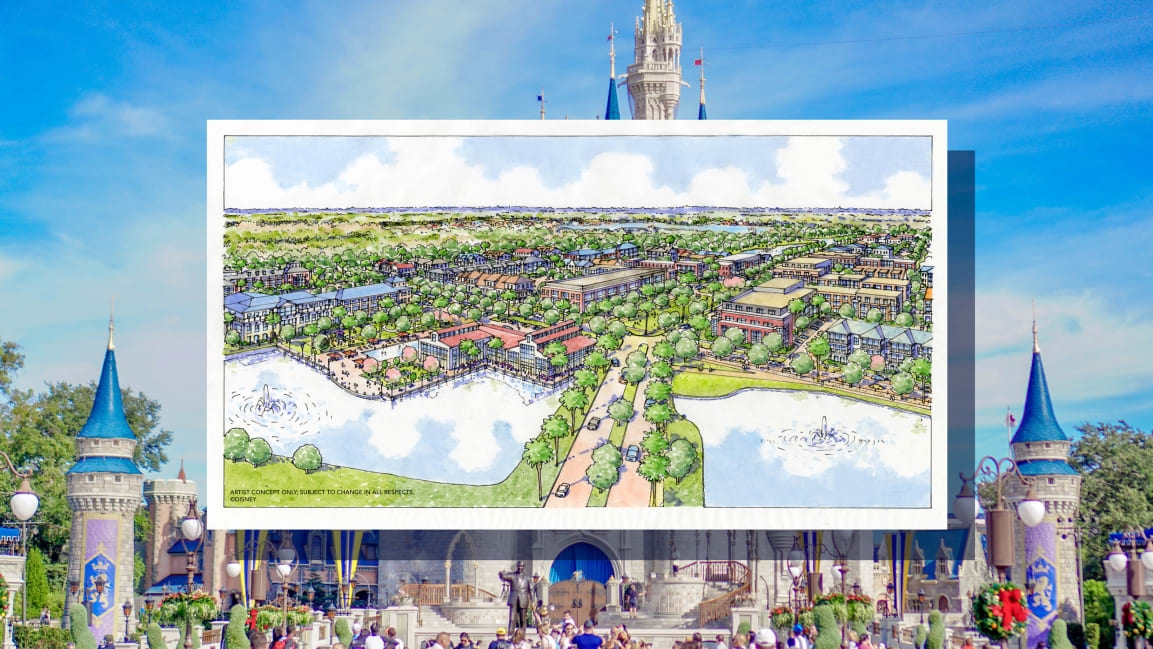Disney unveils plans to build 1,300 units of affordable housing
When Walt Disney unveiled his vision in 1966 for a large project in central Florida, he called it an Experimental Prototype Community of Tomorrow (EPCOT). He said it would be a city of 20,000 residents, with an emphasis on industrial and civic experimentation—a utopian city, with a little Disney theme park magic on the side.
Disney died later that year before his vision could take shape. And when Disney World opened in 1971, his utopian experiment was sidelined into EPCOT Center, just a small element of an otherwise wholly commercial theme park.
Now, more than 50 years later, a more urban part of Disney’s utopian idealism is taking shape. The company is announcing a new project to augment its vast theme park and resort development with 1,300 units of affordable housing, set on 80 acres of land right next to Disney World.
The project is still in early stages and subject to governmental approvals, but the Walt Disney Company is hoping to work with an unnamed third-party affordable housing developer to build a project it says in press materials will make “an important difference locally to address one of the nation’s greatest challenges.” The company declined to make a representative available for comment.
The company’s announcement notes that the housing will be available to income-qualifying candidates from the general public, as well as its own employees. It’s an acknowledgement that the region’s affordable housing shortage is also a problem for Disney’s workers.
In the Orlando area, rents are increasing, and the number of residents paying more than a third of their income on rent is among the highest in the country. In 2019, the National Low Income Housing Coalition named Orlando the worst city in the nation for affordable housing, with just 13 affordably priced homes for every 100 low-income renters. The report estimates that the Orlando metropolitan area has a shortage of more than 60,000 units of housing for those with extremely low incomes. Disney’s affordable housing plans are clearly not happening in a vacuum.
Many Disney World employees make $15 an hour, or the equivalent of just $31,200 a year. Building more affordable housing is one way to help them. Another way would be to raise wages.

This is not Disney’s first foray into residential real estate development. The master-planned community of Celebration, Florida, opened in 1996, was one of its early experiments in neighborhood building. Earlier this year, the company announced another large-scale for-sale housing project in California that aims to create what it calls “storyliving” through themed neighborhoods where residents “can be part of Disney all of the time.” That project will also be a joint venture with an outside developer.
Disney is not the only major entertainment company venturing into the affordable-housing market. Universal Parks and Resorts recently announced a partnership with affordable-housing developer Wendover Housing Partners to build 1,000 units of affordable and mixed-income housing on 20 acres of land near its own Florida theme park. Calling the project Housing For Tomorrow, Universal has also acknowledged that the affordable housing shortage directly affects its own workers. “We have long believed in giving back to the community that has supported us and where our team members live and raise their families,” the company said on the project’s website.
For huge landowners like Disney and Universal, residential development is an obvious business move. In contrast to theme park expansion, building new homes can happen relatively quickly. Throw in a severe shortage of affordable housing in the region, and the business case is even stronger. And by partnering with affordable-housing developers, as each company plans to, their developments will likely be able to tap into government-subsidized sources of financing—bringing costs down and the small, but still profitable, returns of affordable housing development up.
(30)



